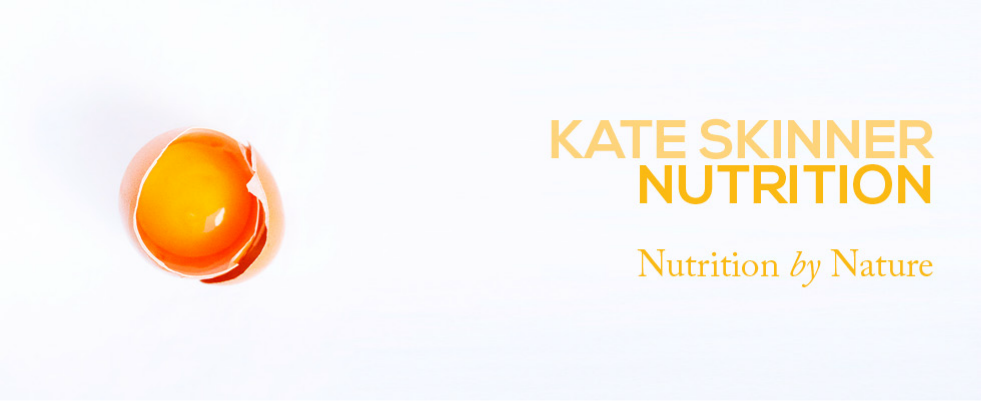I thought I’d tackle the problems surrounding these strategies (reducing salt, increasing water) to try to combat water retention, to explain how in actual fact, they’re much more likely to amplify the problem, rather than solve it. Ultimately, decreasing sodium (salt) in the diet will increase water retention, not the other way around.
Let’s talk about the physiology of fluid retention for a moment since, unfortunately, conventional nutrition recommendations seem to be poorly aligned with what actually goes on in the human body.
Cellular fluid retention/oedema (in a non-diseased state) largely relies on maintaining proper blood volume, which is governed primarily by sodium, carbon dioxide and serum albumin. Blood volume and fluid retention are also affected by certain minerals such as potassium, calcium and magnesium, and hormones, such as oestrogen, progesterone, renin and aldosterone, but for simplicity’s sake we’ll tackle these factors another time.
Without enough sodium (from dietary salt), serum albumin is unable to keep water from leaving the blood and entering the tissues (causing tissue water retention) and vice versa.
Sodium in the diet helps to increase active thyroid hormone (and metabolic rate), increase the production of protective carbon dioxide (CO2), restrain stress hormones and inflammation. Carbon dioxide also plays a key role in water retention, as carbon dioxide regulates the movement of calcium and sodium into and out of the cell by buffering cellular pH in the form of carbonic acid.
If metabolism is low, or shifted towards burning fatty acids for fuel instead of carbohydrates (eg in low-carb diets) then there will be inadequate carbon dioxide produced and it’s more likely that the cell will hold onto water, calcium and estrogen. In a low metabolic state (hypothyroidism) carbon dioxide production is deficient and salt is excessively excreted, both contributing to the retention of water (and hypo-osmotic body fluids) and generally “puffiness” that many people complain of.
In a wordy, round-about kind of way, all this points towards to fact that decreasing sodium in the diet will actually have the opposite effect to what is trying to be achieved here – low salt diets will contribute to water retention.
A few more notes on salt:
- Salt restriction can potentially lower blood pressure by a few points, but this doesn’t necessarily equate to good health. In fact, numerous studies show the deleterious effects of low salt diets on both cardiovascular disease and all-cause mortality, and the research suggests that an ideal sodium intake is about 4-6g per day (about double to triple what is widely recommended as the “upper limit for good health”). This equates to around 10-13g (~2 tsp) of actual salt.
- Low salt diets can also contribute to high blood pressure, as sodium deficiency is one of the factors that can increase renin secretion in the kidneys, and renin stimulates the blood to circulate faster, under greater pressure. Further reading: Salt myths and truths
The answer to your fluid retention woes? As always, person-specific, but some general guidelines aimed at supporting efficient oxidative metabolism and carbon dioxide production would include making sure you’re getting in:
- Adequate salt (and not too much water or other fluid)
- Adequate carbohydrates to promote efficient oxidative metabolism and production of protective CO2
- Adequate complete protein (serum albumin is a marker of dietary protein and good metabolism also relies on getting enough – but not too much – dietary protein)
Plus, eating regular balanced meals containing all the macronutrients (plenty of quality carbohydrates, adequate complete protein and some nutrient-dense saturated fat), helping to stabilize blood sugars and down-regulate stress and inflammation.
Further reading:
Ray Peat – Water: swelling, tension, pain, fatigue, ageing and Salt, energy, metabolic rate and longevity
Matt Stone – Eat for Heat
References
Alderman MH, et al. Dietary sodium intake and mortality: the National Health and Nutrition Examination Survey (NHANES I). Lancet. 1998 Mar 14;351(9105):781-5.
Alderman MH, et al. Low urinary sodium is associated with greater risk of myocardial infarction in treated hypertensive men. Hypertension. 1995, 25:114-1152.
Cohen HW, et al. Sodium intake and mortality in the NHANES II follow-up study. Am J Clin Nutr. 2006 Mar;119(3):275.e7-14.
Cohen HW, et al. Sodium intake and mortality follow-up in the Third National Health and Nutrition Examination Survey (NHANES III). J Gen Intern Med. 2008 Sep;23(9):1297-302.
Esslinger KA, Jones PJ. Dietary sodium intake and mortality. Nutr Rev. 1998 Oct;56(10):311-3.
Kresser C. Shaking up the salt myth. 2012. http://chriskresser.com/shaking-up-the-salt-myth
McCarron DA. DASH-sodium trial: where are the data? Am J Hypertension. 2003 Jan;15(1):92-4.
Nazarov AN, Lobachik VI, et al. Characteristics of the hydration status of patients with hypothyroidism. Probl Endokrinol. 1987 Jan-Feb;33(1):18-21.
Peat R. Salt, energy, metabolism. 2007. http://raypeat.com/articles/articles/salt.shtml
Peat R. Water: swelling, tension, pain, fatigue, ageing. 2007. http://raypeat.com/articles/articles/water.shtml
Schmitt R, Dittrich AM, et al. 2002. Hypo-osmolar hyponatremia as the chief symptom in hypothyroidism. Med Klin. 2002 Aug 15;97(8):484-7.
Whipp GT, et al. Reguation of aldosterone in the guinea-pig-effect of oestrus cycle, pregnancy and sodium status. Aust J Exp Biol Med Sci. 1976 Feb;54(1):71-8.
| Kate is a certified Clinical Nutritionist and offers one-on-one coaching for clients in Sydney Australia, and internationally via Skype or email. Visit the nutrition services page to find out more about private coaching, and be sure to subscribe via email and follow the Nutrition by Nature Facebook page for blog updates, articles, nutrition tips, recipes and special offers. |


